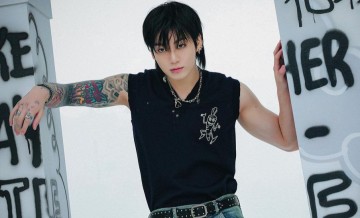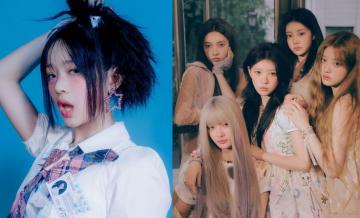Is Psy K-Pop or Hollywood? [Editorial]
These days many people are crediting Psy with making K-Pop mainstream. The worldwide popularity of "Gangnam Style" has thrust the Korean music industry into the limelight and has opened doors for many other Korean artists in the past year.
Ok, fine - thanks, Psy - but is this the whole picture? Hardly.
Ask around and you will find that when an average American thinks of K-Pop, his or her mind automatically turns to "the Gangnam Style guy" first. A handful might know Girls' Generation and even less have heard of groups like Big Bang or Super Junior.
Everywhere else across the globe people are going crazy for K-Pop - it is blaring in nightclubs, idols groups are selling out overseas shows, and iTunes download rates are at an all-time high.
But this trend elsewhere in the world began years before "Gangnam Style" and, if anything, it is still going strong in spite of it.
One thing Psy did manage to do for his fellow Korean artists is pique interest. More and more big names in the US music industry are getting involved with K-Pop. Will.i.am recently collaborated with 2NE1 and Snoop Dogg featured them at his Seoul concert earlier this month, Chris Brown is set to record a single with T-ARA N4, and Jason Mraz has been having a love affair with Korea and its indie musicians for the past six years or so.
The major media outlets, too, are starting to keep a close eye on the music that is being produced in South Korea. It is not all that uncommon nowadays to see a handful of articles each week from Rolling Stone or Billboard raving about a new K-Pop album or single. MTV is amping up for MTV-K, a channel meant to bring K-Pop to the American masses, launching later this summer.
All this is great news for the Korean artists who, like the musicians in any country, dream of international success.
But how does Psy fit in to all of it? He is Korean and he releases popular music, but does he really belong under the heading 'K-Pop'? Truthfully, the answer to that question doesn't really matter.
What made Psy so popular around the world is not so much his music (consider the limited number of Psy fans who actually know what he is singing about), but his presentation of the music. It's theatrics, plain and simple.
Don't get me wrong, Psy is entertaining as heck - his songs are catchy, too - but his approach is falling just short of what would genuinely be considered K-Pop and has entered "Hollywood" territory.
Psy is an entertainer, and a good one at that. He's funny, a little quirky, and all-around, a pretty darn loveable guy. His music is actually really good too, when you take the time to listen to something other than "Gangnam Style" or "Gentleman." But as an entertainer, there are some drawbacks to his success - it is still really hard to tell what Americans really think of Psy and his music.
From one vantage point you can see a veteran singer-songwriter (keep in mind, he's been at this a for well over a decade) who has always had a fair amount of success in his home country, and who just so happened to release a really catchy song (and an unprecedented music video) that took the world by storm. "Gangnam Style" undeniably made Psy the biggest Korean star of all time - and his fame is going to be hard for anyone to top.
From another side, it doesn't seem like many people are taking him or his craft all too seriously. "Gangnam Style" isn't regarded in the same way as other world-famous singles like "Stairway to Heaven" or "Thriller" - it feels sort of like a joke. And, sure, that was the intention when Psy wrote it and made the video. It just so happened to become the most watched music video of all time, a very happy accident which Psy even admits to.
Just take his recent guest lecture at Harvard University. The Korean media billed it as a huge step forward for the singer as well as the K-music industry as a whole. However, across social networks in the States, Psy became the butt of a lot of jokes and raised many questions about what insight he could possibly have to offer and the validity of his words.
So while, yes, Psy did help usher in the wave of K-Pop slowly but surely working its way through the American mainstream, he may also be hindering it.
After laughing at Psy, isn't it then all too easy to poke fun at G-Dragon, SHINee, or the Wonder Girls? Especially when you don't understand the lyrics and you already have an impression in your mind that K-Pop is "cute," "silly," "all the same" - or, maybe even worse, that it is all just like "Gangnam Style."
















